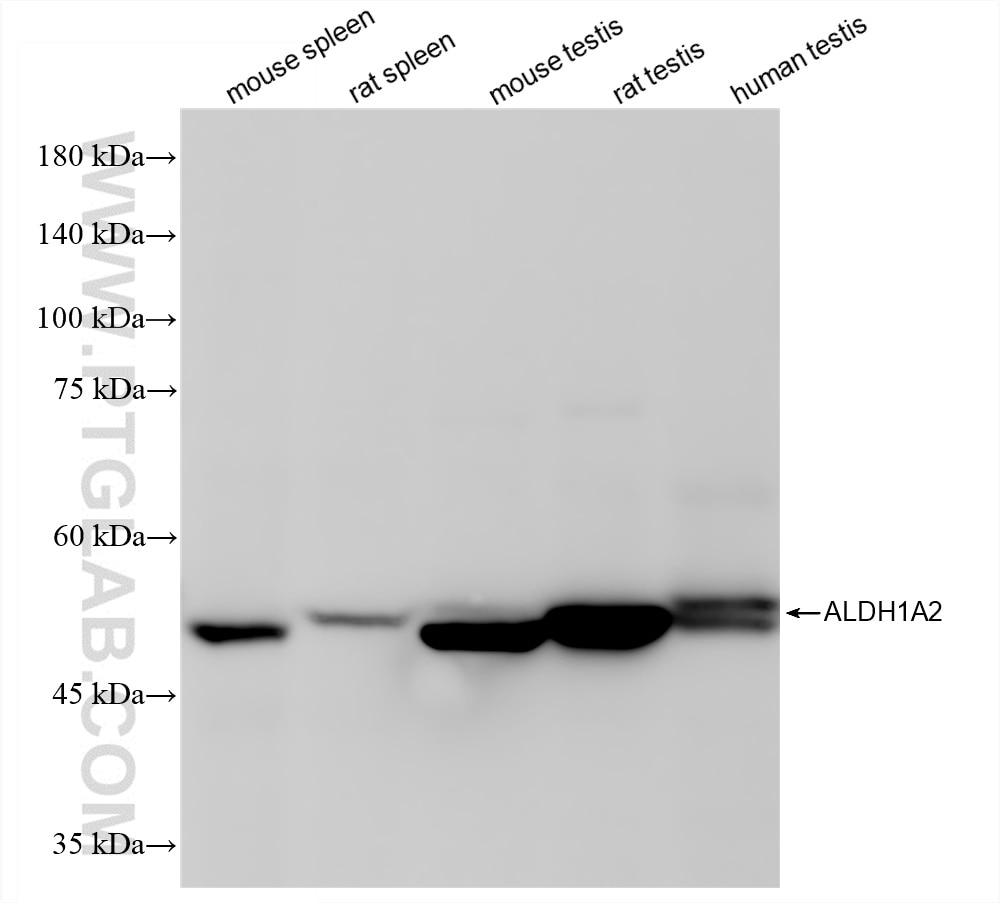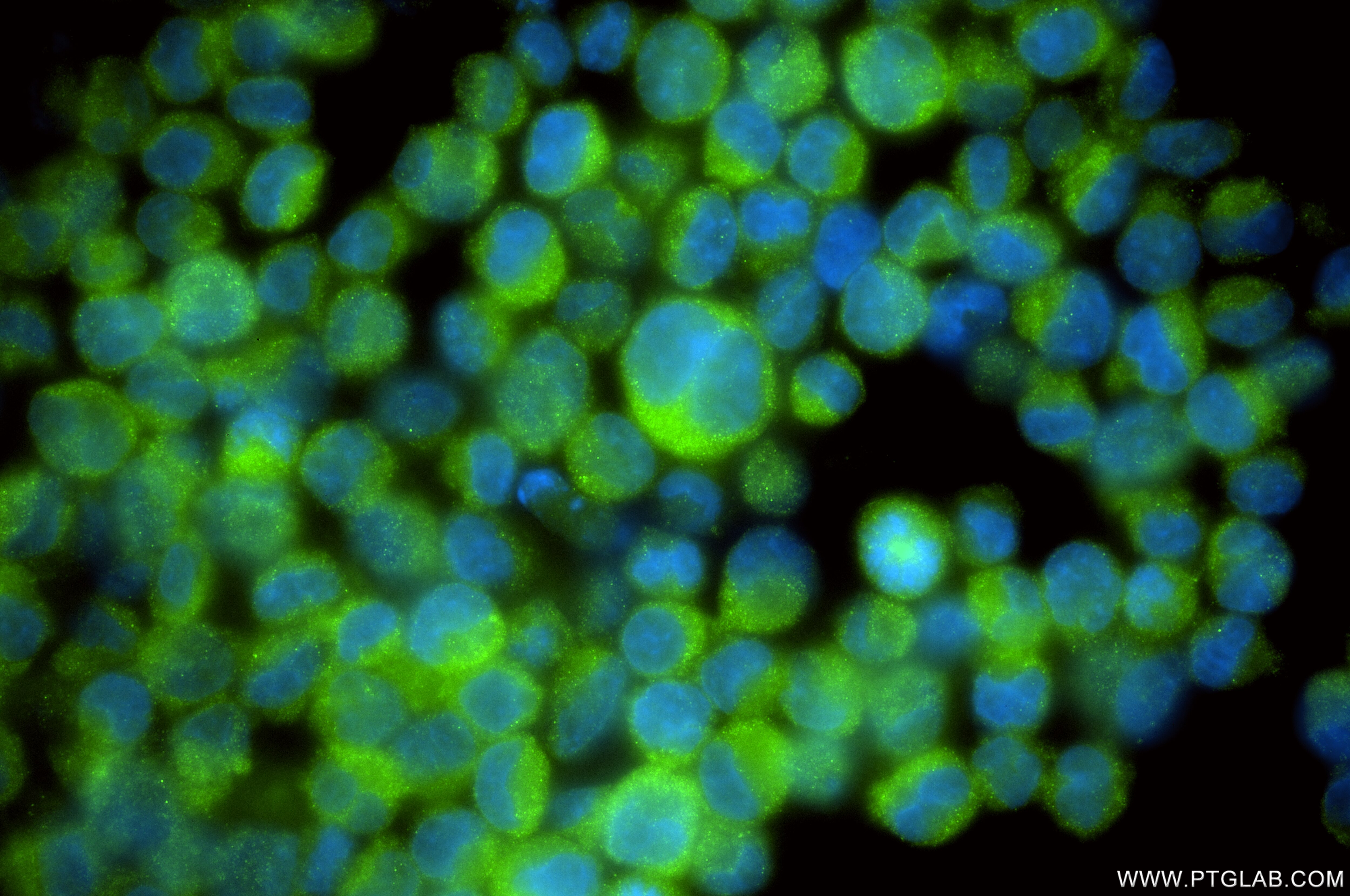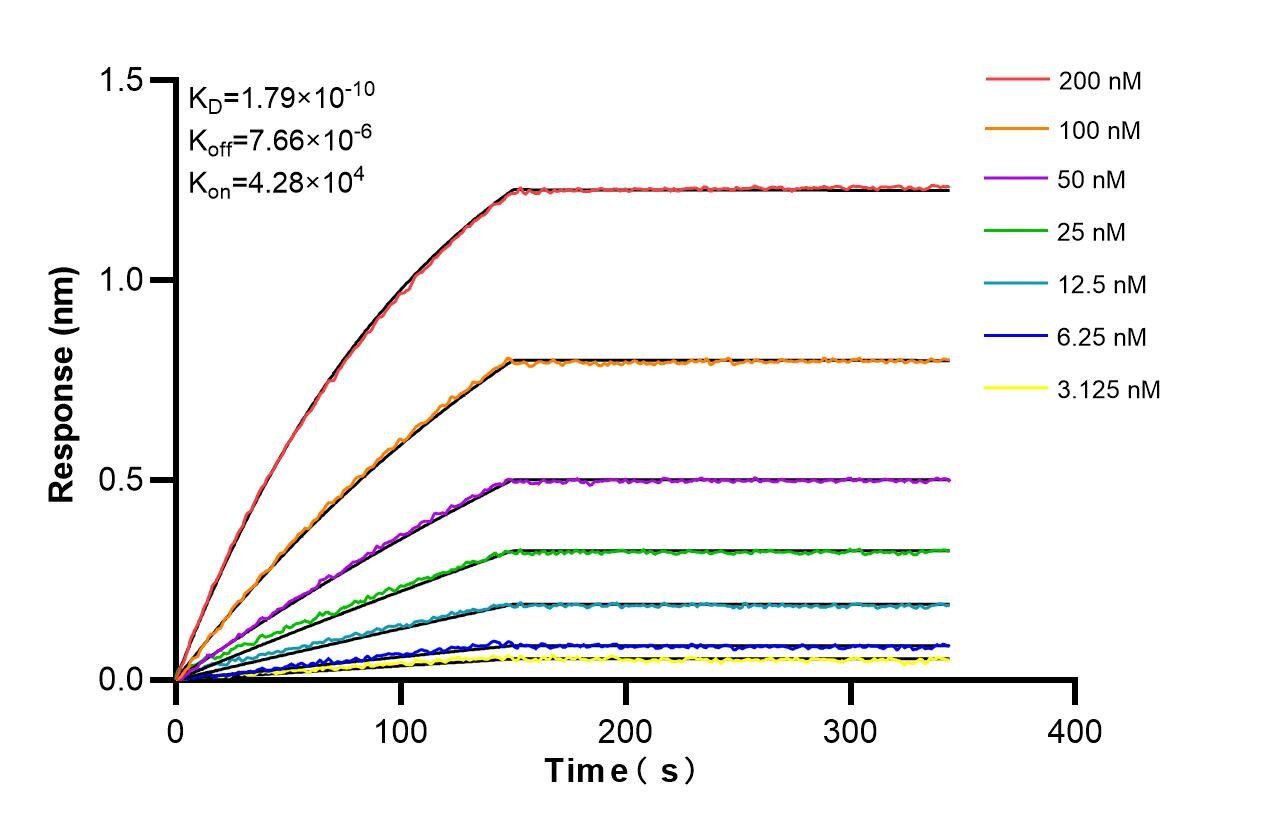Validation Data Gallery
Tested Applications
Recommended dilution
| Application | Dilution |
|---|---|
| It is recommended that this reagent should be titrated in each testing system to obtain optimal results. | |
Product Information
86518-1-PBS targets ALDH1A2 in WB, IF/ICC, Indirect ELISA applications and shows reactivity with human, mouse, rat samples.
| Tested Reactivity | human, mouse, rat |
| Host / Isotype | Rabbit / IgG |
| Class | Recombinant |
| Type | Antibody |
| Immunogen |
CatNo: Ag5062 Product name: Recombinant human ALDH1A2 protein Source: e coli.-derived, PGEX-4T Tag: GST Domain: 181-481 aa of BC030589 Sequence: GQIIPWNFPLLMFAWKIAPALCCGNTVVIKPAEQTPLSALYMGALIKEVGKLIQEAAGRSNLKRVTLELGGKSPNIIFADADLDYAVEQAHQGVFFNQGQCCTAGSRIFVEESIYEEFVRRSVERAKRRVVGSPFDPTTEQGPQIDKKQYNKILELIQSGVAEGAKLECGGKGLGRKGFFIEPTVFSNVTDDMRIAKEEIFGPVQEILRFKTMDEVIERANNSDFGLVAAVFTNDINKALTVSSAMQAGTVWINCYNALNAQSPFGGFKMSGNGREMGEFGLREYSEVKTVTVKIPQKNS 相同性解析による交差性が予測される生物種 |
| Full Name | aldehyde dehydrogenase 1 family, member A2 |
| Calculated molecular weight | 518 aa, 57 kDa |
| Observed molecular weight | 53-57 kDa |
| GenBank accession number | BC030589 |
| Gene Symbol | ALDH1A2 |
| Gene ID (NCBI) | 8854 |
| Conjugate | Unconjugated |
| Form | |
| Form | Liquid |
| Purification Method | Protein A purification |
| UNIPROT ID | O94788 |
| Storage Buffer | PBS only{{ptg:BufferTemp}}7.3 |
| Storage Conditions | Store at -80°C. |
Background Information
ALDH1A2(aldehyde dehydrogenase family 1 member A2) is also named as RALDH2(retinal dehydrogenase 2) and belongs to the aldehyde dehydrogenase family. It is a cytosolic homotetramer(56.7 kDa subunits) exhibiting complex expression patterns throughout embryonic development. ALDH1A2 plays a role in retinoid metabolism during embryonic development where it is considered to be the major retinoic acid-synthesizing enzyme during early embryogenesis(PMID:20735668). Its expression is reduced in primary prostate tumors compared with normal prostate tissue suggested that it is normally expressed in the epithelial compartment of prostate tissue(PMID:16166285).It has 2 isoforms produced by alternative splicing.



